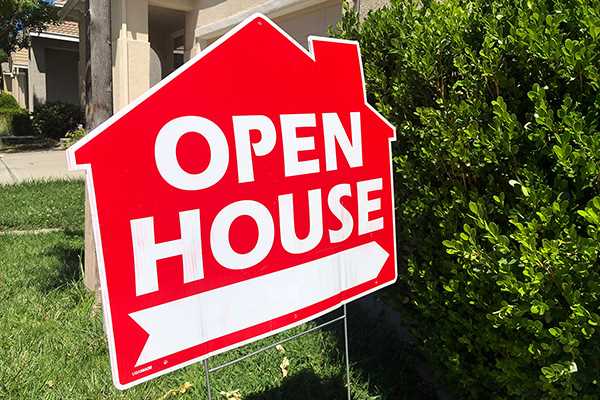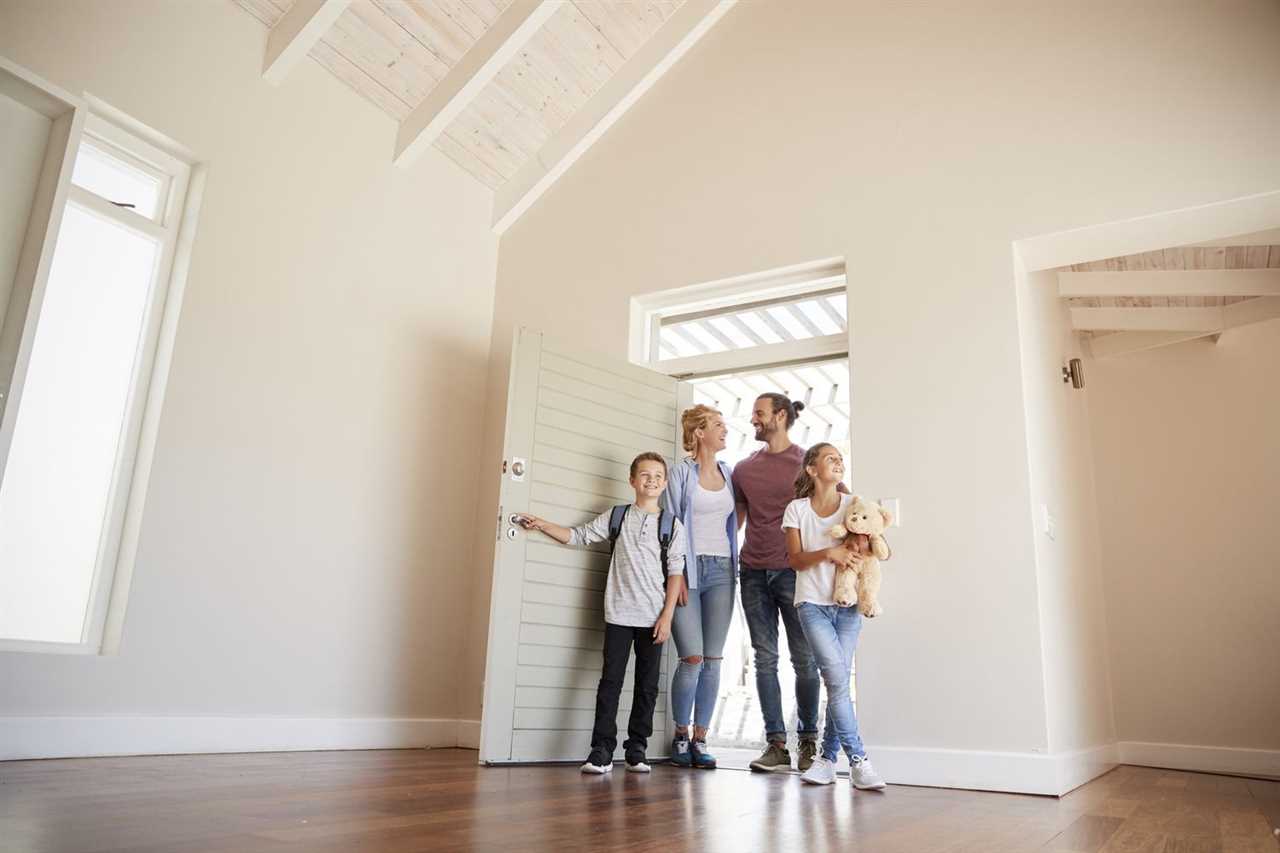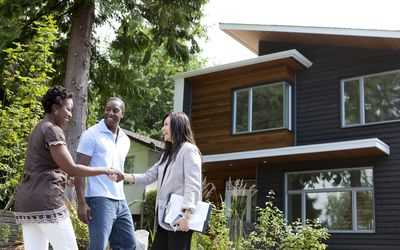Open House: Definition, How It Works, Advantages & Disadvantages
An open house is an event held by a real estate agent or homeowner to showcase a property that is for sale or rent. It is an opportunity for potential buyers or renters to visit the property, view it in person, and ask questions. Open houses are typically held on weekends or during specific hours to accommodate the schedules of potential buyers.
How It Works
During an open house, the property is made accessible to anyone who is interested in viewing it. The real estate agent or homeowner will be present to greet visitors, provide information about the property, and answer any questions. Visitors are usually free to explore the property at their own pace, without the pressure of a formal appointment or scheduled showing.
Open houses often involve multiple visitors at the same time, creating a more casual and relaxed atmosphere. This allows potential buyers to interact with each other, share their thoughts, and discuss the property. It also provides an opportunity for the real estate agent or homeowner to gauge interest and gather feedback.
Advantages
- Convenience: Open houses provide a convenient way for potential buyers or renters to view a property without the need for a formal appointment. They can simply drop by during the designated hours, saving time and effort.
- Flexibility: Open houses are typically held on weekends or during specific hours, making it easier for busy individuals to attend. This flexibility increases the chances of attracting a larger pool of potential buyers.
- Interaction: Open houses allow potential buyers to interact with each other and share their thoughts about the property. This can provide valuable insights and perspectives that may influence their decision-making process.
- Feedback: Open houses provide an opportunity for the real estate agent or homeowner to gather feedback from potential buyers. This feedback can be used to make improvements or adjustments to the property, pricing, or marketing strategy.
Disadvantages

- Lack of Privacy: Open houses are open to the public, which means that anyone can visit the property. This lack of privacy can be a concern for homeowners who value their personal space and security.
- Unqualified Visitors: Open houses attract a wide range of visitors, including those who may not be serious buyers or renters. Dealing with unqualified visitors can be a waste of time and resources for the real estate agent or homeowner.
- Competition: Open houses often involve multiple visitors at the same time, creating a competitive atmosphere. This can make it difficult for potential buyers to fully explore the property or have their questions answered in a timely manner.
- Limited Time: Open houses are typically held for a few hours on specific days. This limited time frame may not be suitable for potential buyers who require more time to thoroughly evaluate the property.
What is an Open House?
An open house is a real estate term that refers to a specific event where a property that is for sale is made available for potential buyers to visit and explore. It is typically held by the seller’s real estate agent and is an opportunity for interested buyers to view the property in person without needing to schedule a private showing.
During an open house, the property is often staged to showcase its best features and create a welcoming atmosphere for visitors. The seller’s agent is present to answer any questions and provide additional information about the property.
Benefits of an Open House
There are several advantages to attending an open house:
- Convenience: Open houses are typically held on weekends or during designated hours, making it easier for potential buyers to visit without having to take time off work or schedule a private showing.
- Exploration: Open houses allow buyers to explore the property at their own pace and get a feel for the layout, size, and overall condition.
- Interaction: Attending an open house provides an opportunity to interact with the seller’s agent and ask questions about the property, neighborhood, and any other relevant details.
- Comparison: Open houses allow buyers to compare multiple properties in a short period of time, making it easier to make informed decisions.
Considerations for Open House Visitors
While open houses can be beneficial, there are a few things to keep in mind:
- Competition: Open houses can attract a large number of potential buyers, increasing competition for the property.
- Privacy: Since open houses are open to the public, there may be limited privacy during the visit.
- Limited Access: Some areas of the property may be restricted or off-limits during an open house.
- Impersonal: Open houses do not provide the same personalized experience as a private showing with a real estate agent.
Overall, attending an open house can be a valuable step in the home buying process. It allows potential buyers to get a firsthand look at a property and gather important information before making a decision.
How Does an Open House Work?
An open house is an event held by a real estate agent or homeowner to showcase a property that is currently on the market. It is an opportunity for potential buyers to visit the property, explore its features, and get a feel for the space. Here is a step-by-step breakdown of how an open house typically works:
1. Advertising and Promotion
Prior to the open house, the real estate agent or homeowner will advertise and promote the event to attract potential buyers. This can be done through various channels such as online listings, social media, flyers, and signage in the neighborhood.
2. Preparation of the Property
Before the open house, the property is thoroughly cleaned and staged to make it look its best. Furniture may be rearranged, decorations added, and any necessary repairs or touch-ups made. The goal is to create an inviting and appealing atmosphere for potential buyers.
3. Welcoming Visitors

On the day of the open house, the real estate agent or homeowner greets visitors at the door and provides them with any necessary information about the property. They may also ask visitors to sign in and provide contact information for follow-up purposes.
4. Guided or Self-Guided Tours
5. Answering Questions

Throughout the open house, the real estate agent or homeowner is available to answer any questions that visitors may have. They can provide additional information about the property, the neighborhood, and the buying process. This is an opportunity for potential buyers to gather all the necessary information to make an informed decision.
6. Follow-Up

After the open house, the real estate agent or homeowner may follow up with visitors who expressed interest in the property. They can provide further details, schedule private showings, or answer any additional questions. This is an important step in the buying process as it allows potential buyers to further evaluate the property and potentially make an offer.
Overall, an open house is a valuable tool in the real estate market as it allows potential buyers to physically experience a property and envision themselves living there. It provides an opportunity for sellers to showcase their property and generate interest among potential buyers. By following these steps, a successful open house can lead to a quicker sale and a satisfied buyer.
Advantages of Open House
An open house is a valuable tool for both buyers and sellers in the real estate market. It offers several advantages that can help facilitate the buying and selling process. Here are some of the key advantages of hosting or attending an open house:
1. Convenience
Open houses provide convenience for both buyers and sellers. For sellers, it allows them to showcase their property to multiple potential buyers at once, saving them time and effort compared to scheduling individual showings. Buyers, on the other hand, can visit multiple properties in a single day, making it easier to compare and evaluate different options.
2. Access to Information
During an open house, buyers have the opportunity to gather important information about the property directly from the seller or the seller’s agent. They can ask questions about the property’s features, condition, and any recent updates or renovations. This direct interaction can provide valuable insights that may not be available through online listings or photos.
3. Visual Inspection
Attending an open house allows buyers to visually inspect the property in person. They can explore each room, check the layout, and assess the overall condition of the property. This firsthand experience can help buyers determine if the property meets their needs and preferences.
4. Networking
Open houses provide an opportunity for buyers to network with other potential buyers, as well as real estate agents. They can exchange information, share experiences, and gain insights from others who are also in the market for a new home. This networking can be valuable in terms of gathering information about the local real estate market and finding potential future opportunities.
5. Competitive Advantage
Attending an open house can give buyers a competitive advantage in a competitive market. By being one of the first to view a property, they can submit an offer before other potential buyers have a chance to do so. This can increase their chances of securing the property they desire, especially in a market where properties are in high demand.
Disadvantages of Open House
While open houses can be beneficial for both buyers and sellers, there are also some disadvantages to consider. Here are a few drawbacks of hosting or attending an open house:
1. Limited Time and Attention
During an open house, the seller and their real estate agent have a limited amount of time and attention to dedicate to each potential buyer. This means that you may not have the opportunity to ask all of your questions or receive personalized attention.
2. Competition
Open houses can attract a large number of potential buyers, which means you may be competing with other interested parties. This can create a sense of urgency and may lead to a bidding war, driving up the price of the property.
3. Lack of Privacy
When attending an open house, you will be viewing the property alongside other potential buyers. This can make it difficult to explore the space at your own pace and have private conversations with your partner or real estate agent.
4. Inaccurate Representation
6. Pressure to Make a Decision

Emily Bibb simplifies finance through bestselling books and articles, bridging complex concepts for everyday understanding. Engaging audiences via social media, she shares insights for financial success. Active in seminars and philanthropy, Bibb aims to create a more financially informed society, driven by her passion for empowering others.
